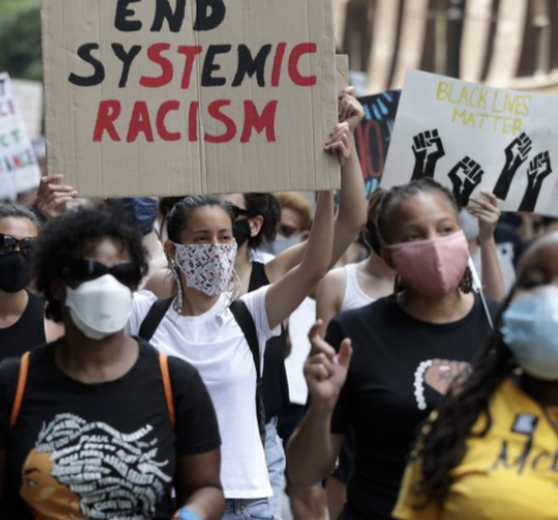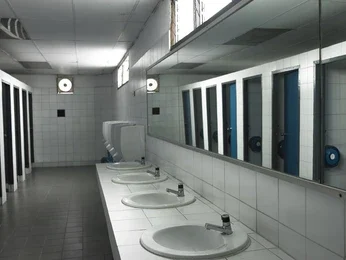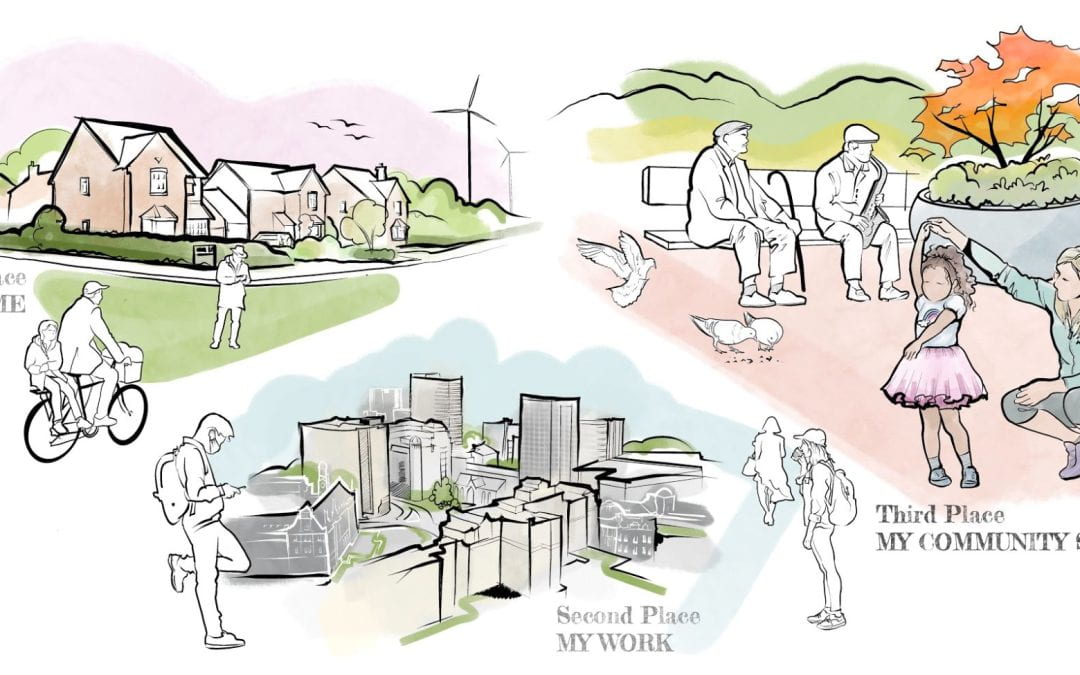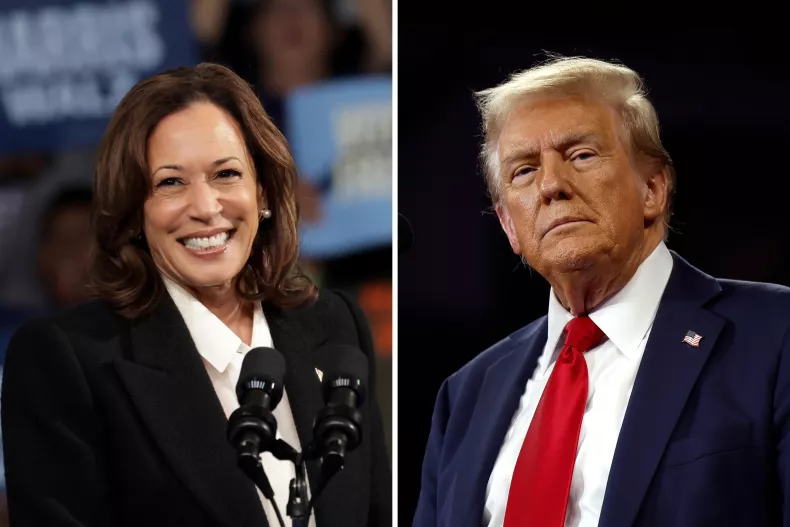“We Repent!” (Anti-Racism Projects in Christian Churches)

November 18, 2020
Religion is a power. It is a form of categorization. It helps us make sense of our world and “religion, art, and philosophy are the three noblest achievements of the human spirit,” said Gary Percesepe, pastor at Church in the Highlands in White Plains (a progressive Protestant Church), a philosophy professor at Fordham University and a writer. Yet, religion can also be used to divide. To conquer. To degrade the human spirit and justify racism and slavery.
In my article “Stirring of Conscious” I aimed to illuminate some of the ways in which racism infiltrates and pervades many of the sects of society that we deem holy. In this article, I aim to illuminate some of the racial reconciliation and repair that is occurring in churches. Synagogues, mosques and other religious spaces are not exempt from racism, but this article will specifically focus Christianity.
Emily Brown, an ordained minister at First Reformed Church whose ordination is in the United Church of Christ (a Protestant Christian denomination), said, “My conference minister – my UCC denominational leader – says that we as ministers should be addressing America’s original sin of racism in Sunday worship no less frequently than once a month. That’s kind of his benchmark. I think that if you ever are saying ‘oh, I’m doing it once a month so I’m all set’ that’s not how that’s supposed to work but I think that addressing race and racism and racial justice at least once a month builds our – as a congregation – awareness, our comfort level.”
She added: “The history of the church is full of racism, and until we address that I don’t think that the church deserves to just get the record wiped clean. We have to reckon with these systems and our place in them, the way that they benefited us, and the way that the church has shaped them. I think that the religious systems – Christianity especially – are deeply entangled with the history of race in America, and we have to acknowledge all of that history as we do the work of fighting racism in ourselves, in our society, in our religious structures.”
The NY conference level of her UCC denomination introduced the idea of doing a racial audit within the church and “we’re sort of back within the walls of the church again. The idea of a racial audit is that as a Church you take stock of the racial underpinnings of everything from like ‘What is the art on the walls? What are the books on your shelves? What is the music that you sing and play during worship? Who writes your curriculum? What kinds of decision-making processes do you use and where culturally do those come from?’ All of these kinds of questions of how your culture and unexamined culture of your church can reflect white supremacy and white cultural norms. I think it is absolutely on the church to be publically and outspokenly anti-racist and we need to be doing our soul work; we need to be doing our instituational work at addressing racism within the individual and within the congregations’ culture as well.”
Gary Percesepe’s denomination is having “sacred conversations on race.” A couple of years ago, “we partnered with two churches, a Black church in Queens on the edge of Brooklyn, and a church in Pelham, so two white churches paired with a Black church and we spent a year having these sacred conversations, which were structured. First of all we would worship together and that was interesting, blending Black and white worship styles and then hearing some good preaching, scriptures, and then we would have lunch together which was amazing and we had incredible food. People would bring food to share for everybody and we’d have this big meal and then we’d have a sacred conversation.”
He added, “we’re having a three-church sacred conversation and the first time there were like four people from my church zoomed in on that. So I think it’s creating circles, Bible studies, but also making folks aware of events; you know there are protests to attend, there are interfaith collaborative projects going on all over the place, and then countless vigils we have attended. When George Floyd was killed, we came out for a time of mourning, a public ritual of mourning for eight minutes and forty-six seconds in front of the Martin Luther King Jr. statue downtown; we took a knee. So a vigil is a structured time of remembrance and mourning, so we’ve done that. But I think it’s not enough.”
He added, “For me personally, the best things are just forming new relationships that are very meaningful to me with Black folks and friendships. The friendships that I have are priceless to me, and so relationship-building and I guess the most important thing to me is sharing our collective stories. Not just individual stories, but sharing collective stories. So Black folk, white folk, Brown folk. If things are really going to change we need to hear one another and tell our stories. We need to be able to touch their pain and the pain is there for Black folks, and it’s also there for white folks, as they realize that this ‘white thing’ – you know, it’s caused a lot of pain, and it’s masking a lot of pain. So in other words, I think a lot of the anger that white folks are experiencing… so I think we’ve got these huge divisions and we have a hell of a lot of work to do in finding the pain, touching the pain, finding out where the pain is, where does it hurt? I think that’s the question we need to ask. Where does it hurt? Tell our stories, and it’s redemptive work that needs to be done. Not blaming and not scapegoating.”
He added that he thinks that racial dialogue is “sorely needed in white Christianity generally and in American churches particularly. I think that there’s a certain kind of fragility that causes people to not want to engage in the things that are most important. I would tend to focus not just on race but also on the ideology of whiteness, and particularly the ideology of white supremacy, which is at the heart of the problem. So I really liked Ibram X. Kendi’s book ‘How to Be An Antiracist’ and I feel that my own approach to this is similar in the sense that people are not – the problem is not white people. It’s the culture of whiteness, as Ruby Sales puts it. That’s what causes white people to support racist policies and actions.”
When I asked Percesepe about how we can change this perception of whiteness, he said: “In a word, conversion. At the heart of our faith is the call to repentance. Self-examination is one of the cardinal Christian virtues. That’s still true, even in an unreflective age. We’re called to engage in self-reflection. I think when we think critically about ourselves and our faith, if we’re honest, which we have to be, in order to be a person of spiritual maturity, then we have to reflect on the many ways in which we fall short of our calling. That’s why we have confession in the church – at least in the reform tradition and catholic tradition – you have confession of sin. Sin is not ‘sins’ – I mean you know like “I did this wrong, I did that wrong. The idea of sin is that we sort of have this downward bent of our character, that we’re always missing the mark. And that we participate not just in individual sins but we are complicit and even co-conspirators in a system of white supremacy. I talk about it – white liberals like to talk about their complicity with racism, and I think it’s far more than complicity – I think we have been co-conspirators. We have advanced white supremacy. It’s in our churches, and it’s in ourselves. What do we do? We repent!”
He added, “So rather than hang a sign over people and make them bear shame for the rest of their lives, by equating whiteness with racists, I think it’s far more helpful to recognize that we can act in a racist way and act in an anti-racist way. The original question is ‘what can we do’ – we can repent. As Jesus says, ‘Repent and believe the good news.’ Another way is possible. We don’t have to continue to do this. We can change. We can transform. It all begins with self-examination.”
When addressing church segregation, he provided this: “11:00 o’clock [on Sunday] is the most segregated hour in America, so for Jews it would be Sabbath day but same principle. So I really like the way Kendi approaches the whole idea of spaces. I think that people tend to be among those who are like them, and this is a human characteristic. And so we feel more comfortable and it’s a continual challenge. What’s so interesting about the Christian faith is that as the Archbishop of Cadbury’s commemoration date is today, William Temple, one of the Cadbury Bishops of the 20th century, he said the church is the only institution that he knows of that was created and whose existence is not for itself but for other people. The whole point of these religious institutions is that they exist for the sake of others, so that’s at the heart of our faith. The problem is that we’ve had a hell of a time living up to that. The problem is, we like living in our spaces, these racialized spaces.”
“If you look at housing in America, it’s racist. It’s because of racist policies. We have housing segregation. We have schools that are still segregated, even after Brown vs. Board of Education. Yonkers had huge problems with housing. The problem again is racist policies and racist actions, and churches, synagogues, and mosques are not immune from that, and so therefore, all the world’s religions are called to engage in self-examination. We’re back to that. And repentance. But at their best, these institutions give us a structure. As bad as things are, think if there weren’t temples or and mosques and spiritual spaces where people could together reflect on religious images and symbols.”
To give us some hope, Percesepe ended with this: “There’s a social dimension to our faith that goes beyond personal happiness or private virtue to have a vision for the pain and suffering in the whole world; to bring redemptive hope.”

















